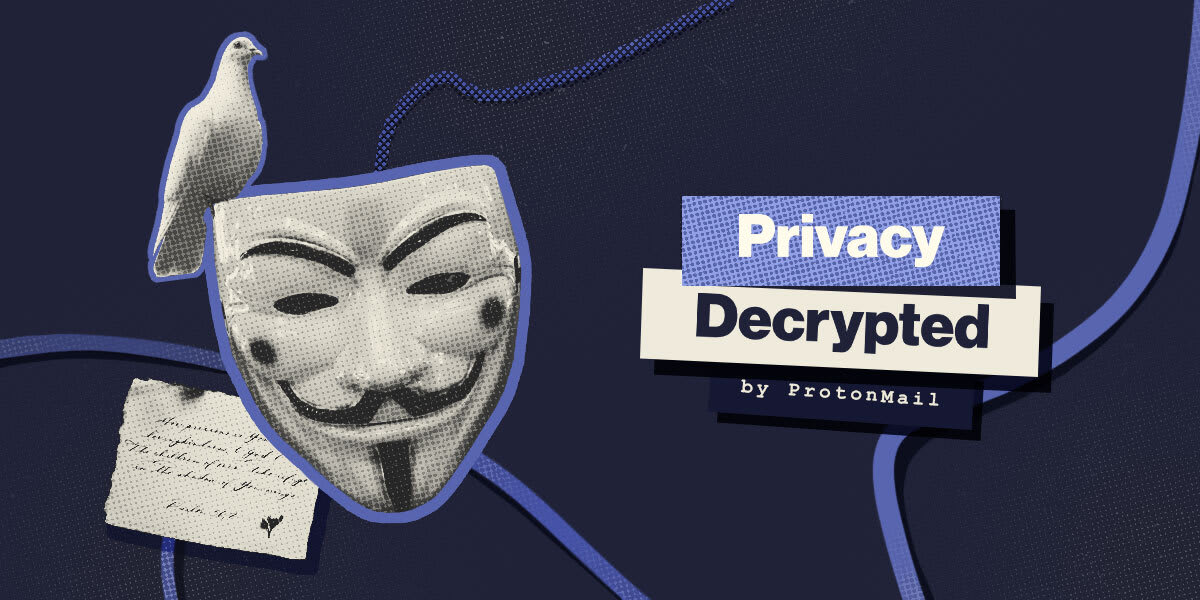Privacy and anonymity are often tossed about as synonymous terms but they are actually related ideas that represent different things. Put simply:
- Privacy is freedom from observation or attention.
- Anonymity is freedom from identification or recognition.
While the concepts overlap, they are by no means interchangeable. If you send an encrypted email to your friend, it’s private — only you (the sender) and your friend (the recipient) are able to read it.
Conversely, if you post a comment on a forum under an internet moniker, it’s not private at all. Everyone can read your comment, although they may not know it was you who posted it. That’s anonymity.
Privacy and anonymity are also legally distinct concepts, and one does not guarantee the other. Privacy is generally a constitutionally protected right, but anonymity is not.
It is increasingly difficult to be both private and anonymous in a hyper-connected world. On the internet, advertisers track your browsing habits across your devices to know what kind of websites you visit and display targeted ads to you. Governments around the world are passing laws that enable authorities to surveil ordinary citizens(new window), violating our right to privacy.
While 100% privacy and anonymity on the internet is impossible, you can still take steps to become more private and anonymous.
How to use Proton Mail to be more private
To safeguard your online communications, use encrypted email services like Proton Mail. Proton Mail uses two forms of encryption to keep your emails private: zero-access encryption and end-to-end encryption.
Zero-access encryption
Proton Mail protects all emails in your inbox with zero-access encryption(new window). This form of encryption makes it impossible for us to decrypt an email after it lands in your inbox. Zero-access encryption cannot be undone, and once an email is encrypted, it cannot be decrypted by Proton Mail. Its contents also cannot be shared with anyone.
End-to-end encryption
Proton Mail also utilizes end-to-end encryption (E2EE)(new window) to secure your communications. Emails exchanged between Proton Mail users or Proton Mail and non-Proton Mail users using PGP are protected with end-to-end encryption. This provides an extra layer of security preventing your emails from being accessed by anyone except you and the recipient.
With Proton Mail, you can also set a timer on your emails(new window) so they automatically self-destruct after the expiration time has passed. That way, your emails are permanently erased from our servers.
Finally, unlike email services provided by big tech companies, Proton Mail does not track you across the internet or use your information and digital footsteps to build profiles around your identity.
Sign up for a free email account.(new window)
How to use Proton Mail more anonymously
Due to how the internet works, your IP address is always transmitted to the website you’re visiting. Your IP address is a unique identifier assigned to you by your internet service provider and serves as an online postal code that enables people to connect your online behavior to you.
The simplest and most straightforward way to protect your IP address and, by extension, your anonymity is to use Proton VPN(new window). Our VPN allows you to access the internet by routing all of your internet traffic through an encrypted tunnel, hiding your IP address in the process. Proton VPN is the only free VPN that:
- Does not log your online activity
- Does not impose speed or data limits
- Does not have advertisements
- Is open source and publicly audited
- Is protected by Swiss privacy laws
You can also use the Tor anonymity network to increase your anonymity. While Tor is more difficult to use and has lower performance, it provides a high level of true anonymity because it does not rely on centralized servers. If you use the Tor anonymity network, you can also access Proton Mail via our onion site(new window).
To use Proton Mail more anonymously, you should create your Proton Mail account and only access your account while connected to Proton VPN or Tor. Proton Mail provides privacy by default, but to be more anonymous, you have to either connect to Proton VPN or Tor each time you use the internet. You can learn more about using Tor by reading our guide(new window).














